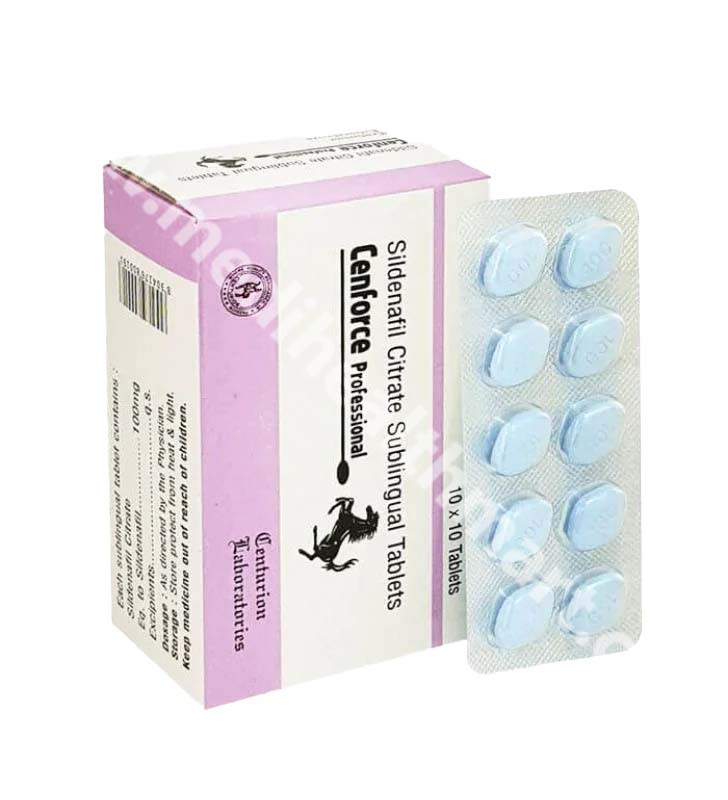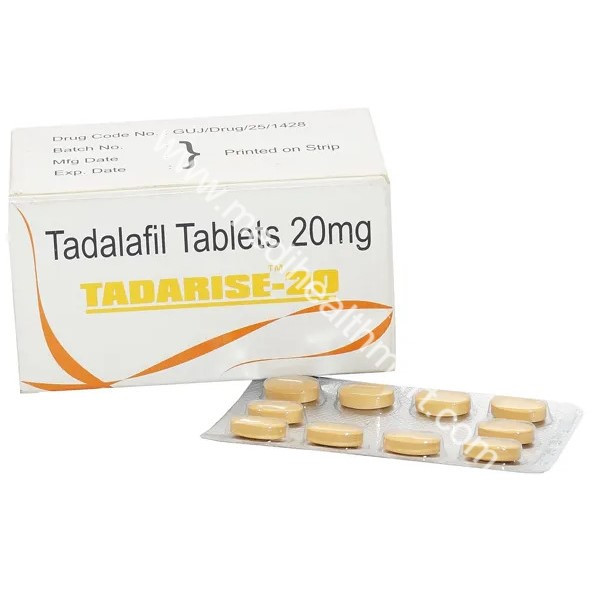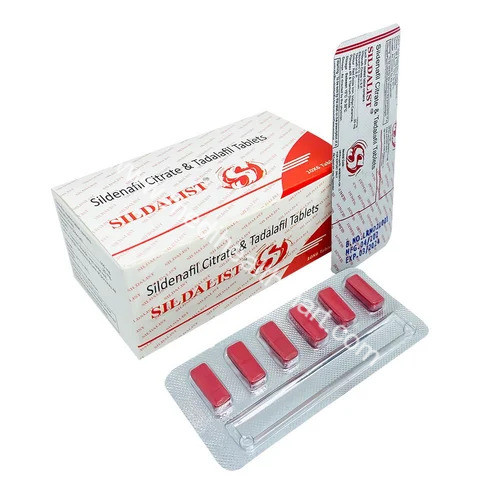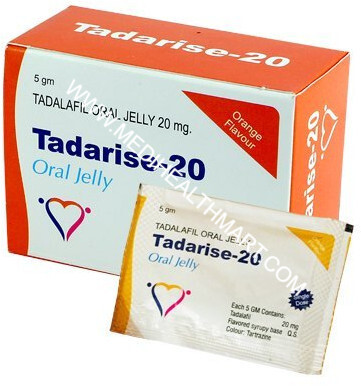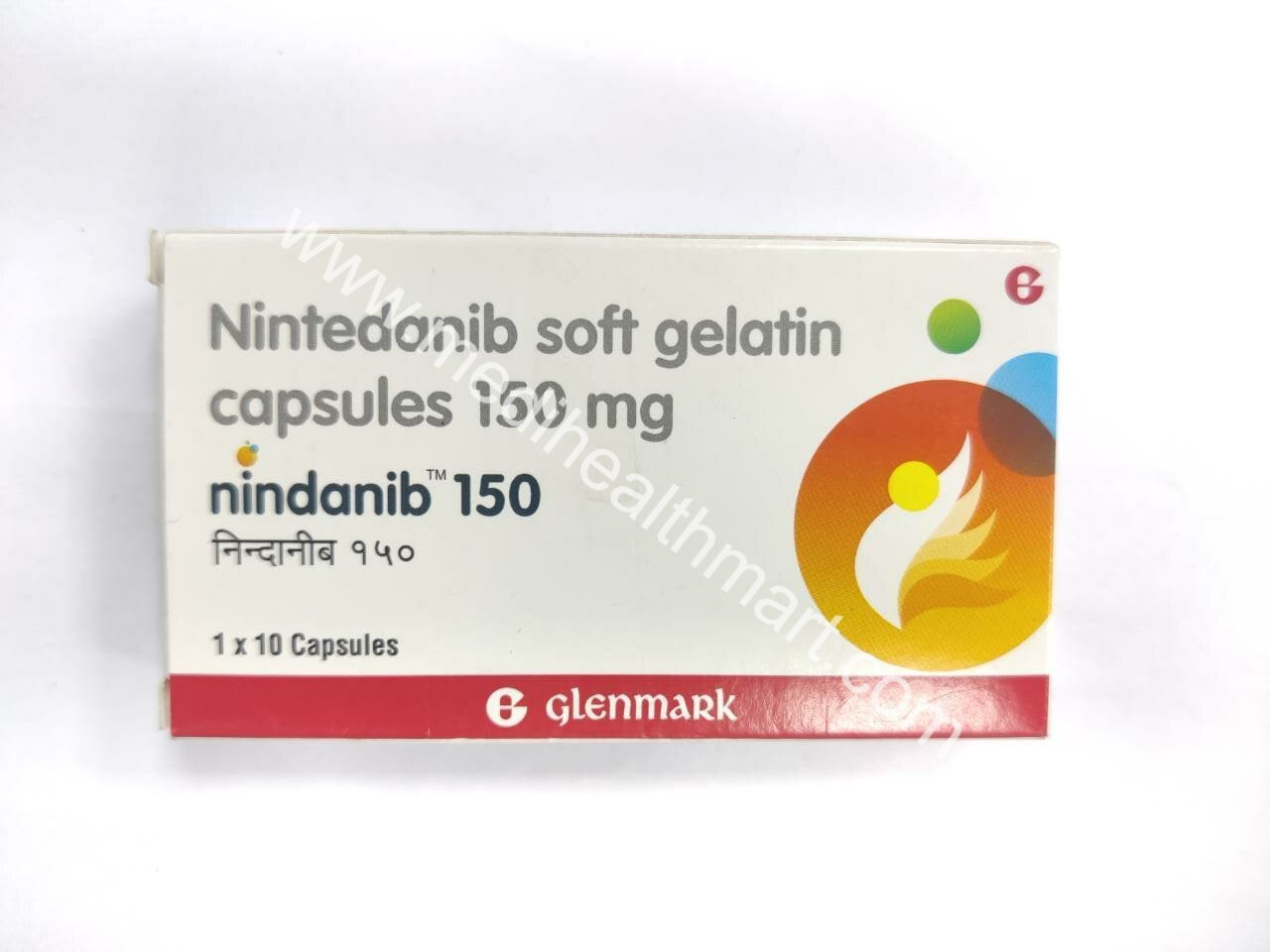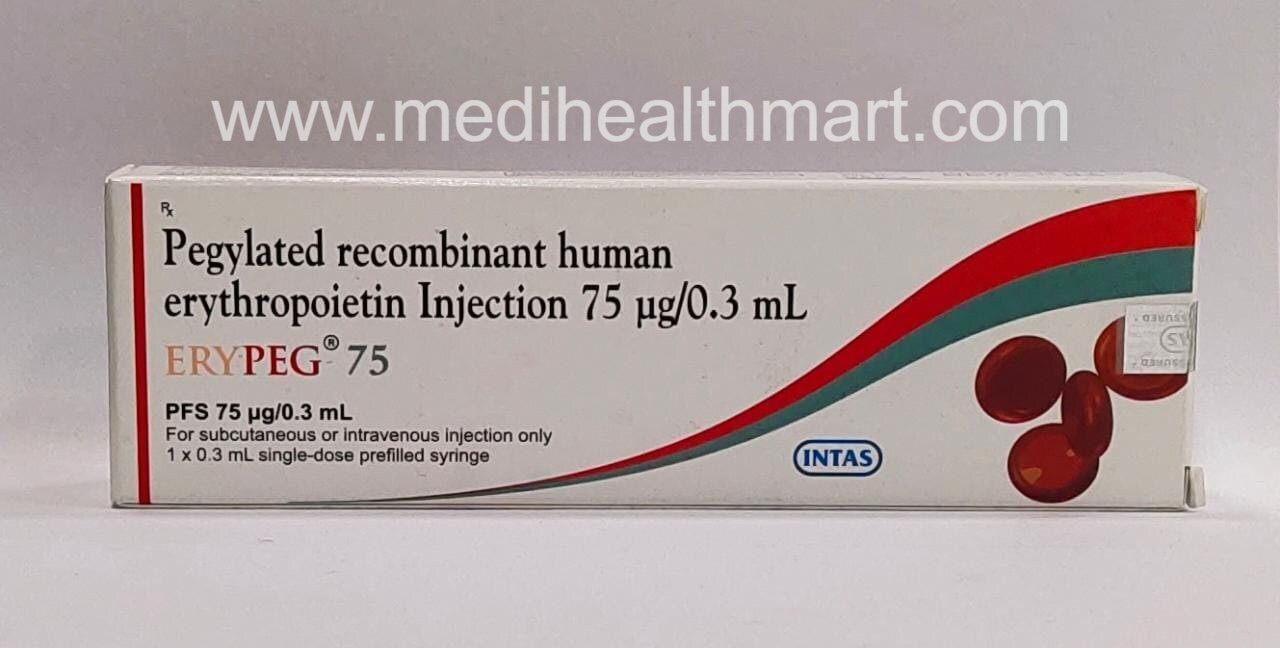

Erypeg 75mcg
Erypeg 75 mcg is a pegylated erythropoietin (PEG-EPO) injection used for the treatment of anemia associated with chronic kidney disease (CKD), both in patients on dialysis and those not on dialysis. It is also used to manage anemia caused by chemotherapy in cancer patients. Pegylation improves the half-life of erythropoietin, allowing for less frequent dosing compared to traditional erythropoietin (EPO) formulations.
Anemia is a common complication in CKD and chemotherapy, largely due to decreased erythropoietin production or bone marrow suppression. Erypeg acts by stimulating red blood cell production (erythropoiesis) in the bone marrow, helping to increase hemoglobin levels and reduce the need for blood transfusions.
Erypeg 75 mcg is administered as a subcutaneous (SC) injection or intravenous (IV) injection under the supervision of a healthcare provider. The dosage and frequency are determined based on the patient’s hemoglobin levels, body weight, response to treatment, and clinical condition.
Uses of Erypeg 75 mcg
✅ Anemia in Chronic Kidney Disease (CKD) — to increase red blood cell production and hemoglobin levels in both dialysis and non-dialysis patients
✅ Chemotherapy-Induced Anemia — to reduce transfusion requirements in cancer patients undergoing chemotherapy
✅ Anemia due to Other Chronic Diseases — in select cases, as determined by the treating physician
Key Benefits
-
Longer dosing interval: Thanks to pegylation, Erypeg can be administered less frequently than standard EPO injections, improving patient compliance.
-
Effective anemia management: Helps restore hemoglobin levels, reducing fatigue and improving quality of life.
-
Reduces transfusion need: Minimizes dependence on blood transfusions, which carry their own risks.
-
Convenient administration: Available as subcutaneous or intravenous injections, depending on patient needs and healthcare setting.
How Erypeg Works
Erypeg contains pegylated recombinant human erythropoietin, which acts by stimulating the erythropoietin receptors in the bone marrow. This promotes the proliferation and differentiation of erythroid progenitor cells, leading to increased red blood cell production. Pegylation extends the half-life of the drug, allowing for more sustained erythropoietic activity and less frequent administration compared to non-pegylated EPO formulations.
By increasing red blood cell counts, Erypeg improves oxygen-carrying capacity, helping alleviate symptoms such as fatigue, weakness, and shortness of breath in anemic patients.
Dosage & Administration
-
For CKD-related anemia: Typically administered once every 2–4 weeks, depending on patient response and hemoglobin levels.
-
For chemotherapy-induced anemia: Dose and schedule vary based on hemoglobin response; generally administered once every 3–4 weeks.
-
Administration route: Can be given subcutaneously (SC) or intravenously (IV), typically under healthcare provider supervision.
-
Monitoring: Regular hemoglobin, hematocrit, iron levels, and blood pressure monitoring are necessary to ensure safe and effective treatment.
-
$69.00 - $99.00
-
$79.00 - $181.00
-
$59.00 - $95.00
-
$60.00 - $183.00
-
$45.00 - $121.00
-
$95.00 - $200.00
Reviews & Ratings
Erypeg 75 mcg is a pegylated erythropoietin (PEG-EPO) injection used for the treatment of anemia associated with chronic kidney disease (CKD), both in patients on dialysis and those not on dialysis. It is also used to manage anemia caused by chemotherapy in cancer patients. Pegylation improves the half-life of erythropoietin, allowing for less frequent dosing compared to traditional erythropoietin (EPO) formulations.
Anemia is a common complication in CKD and chemotherapy, largely due to decreased erythropoietin production or bone marrow suppression. Erypeg acts by stimulating red blood cell production (erythropoiesis) in the bone marrow, helping to increase hemoglobin levels and reduce the need for blood transfusions.
Erypeg 75 mcg is administered as a subcutaneous (SC) injection or intravenous (IV) injection under the supervision of a healthcare provider. The dosage and frequency are determined based on the patient’s hemoglobin levels, body weight, response to treatment, and clinical condition.
Uses of Erypeg 75 mcg
✅ Anemia in Chronic Kidney Disease (CKD) — to increase red blood cell production and hemoglobin levels in both dialysis and non-dialysis patients
✅ Chemotherapy-Induced Anemia — to reduce transfusion requirements in cancer patients undergoing chemotherapy
✅ Anemia due to Other Chronic Diseases — in select cases, as determined by the treating physician
Key Benefits
-
Longer dosing interval: Thanks to pegylation, Erypeg can be administered less frequently than standard EPO injections, improving patient compliance.
-
Effective anemia management: Helps restore hemoglobin levels, reducing fatigue and improving quality of life.
-
Reduces transfusion need: Minimizes dependence on blood transfusions, which carry their own risks.
-
Convenient administration: Available as subcutaneous or intravenous injections, depending on patient needs and healthcare setting.
How Erypeg Works
Erypeg contains pegylated recombinant human erythropoietin, which acts by stimulating the erythropoietin receptors in the bone marrow. This promotes the proliferation and differentiation of erythroid progenitor cells, leading to increased red blood cell production. Pegylation extends the half-life of the drug, allowing for more sustained erythropoietic activity and less frequent administration compared to non-pegylated EPO formulations.
By increasing red blood cell counts, Erypeg improves oxygen-carrying capacity, helping alleviate symptoms such as fatigue, weakness, and shortness of breath in anemic patients.
Dosage & Administration
-
For CKD-related anemia: Typically administered once every 2–4 weeks, depending on patient response and hemoglobin levels.
-
For chemotherapy-induced anemia: Dose and schedule vary based on hemoglobin response; generally administered once every 3–4 weeks.
-
Administration route: Can be given subcutaneously (SC) or intravenously (IV), typically under healthcare provider supervision.
-
Monitoring: Regular hemoglobin, hematocrit, iron levels, and blood pressure monitoring are necessary to ensure safe and effective treatment.
Frequently Brought Products
-
$69.00 - $99.00
-
$79.00 - $181.00
-
$59.00 - $95.00
-
$60.00 - $183.00
-
$45.00 - $121.00
-
$95.00 - $200.00











